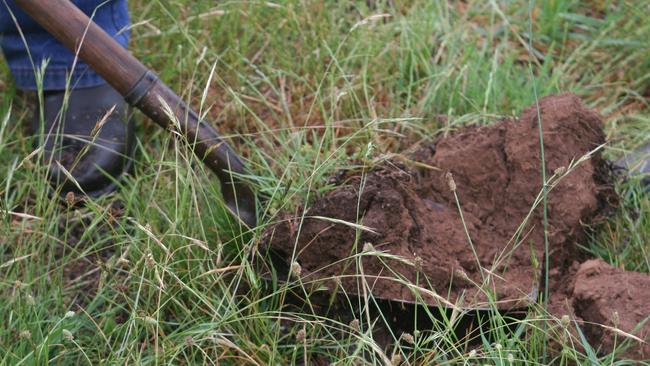Soil carbon: Crop producers lose money at current carbon price
New research suggests participating in soil carbon projects results in financial loss to crop growers at current carbon prices.
New research suggests participating in soil carbon projects produces a net financial loss to crop growers at current carbon prices.
University of Western Australia school of agriculture and environment professor David Pannell said an economic analysis of soil carbon projects found participating in a soil carbon project would cost a crop producer about $2 a hectare per year even if carbon prices rose to $50 a tonne.

The Australian Carbon Credit Unit Spot price was about $37 a tonne on Monday.
“A farmer might be tempted to think that this could be an easy way to earn some money: all they need to do is measure their current level of soil carbon, adopt one of the 13 eligible (carbon sequestration) practices, measure the increase in soil carbon, tell the government about it and wait for the check,” Prof Pannell said.
“However it is not quite as rosy as that sounds.”
“Most farmers shouldn’t expect big money from the ERF (Emissions Reduction Fund) for carbon. Especially not croppers,” he said.
“I’ve played around with the numbers significantly, and I can’t see a scenario that makes (participating in a soil carbon program) worthwhile for croppers,” he said.
“We know that realistic levels of carbon sequestration in soils under crops range from about zero up to 0.7 tonnes of CO2 equivalent per hectare per year.
“And if we use a price of $25 dollars a tonne … and we use the mid-range of 0.37 tonnes (of CO2 equivalent per hectare per year), then we end up with a potential payment of $9 per hectare per year.
But once you account for the costs of soil testing, reporting, auditing, plus other unknowns, including the risk of losing carbon out of the soil, the cost of sequestering carbon outweighs the potential benefits, he said.
Establishing carbon levels over time was one of the highest costs, at about $30/ha. The Morrison government invested in technology in March aimed at reducing the cost of soil carbon measurement to less than $3/ha per year, but that technology is still in development.
Prof Pannell’s analysis assumed the cost of soil measurement started at $16/ha per year and would fall between now and 2030 to about $4/ha per year, but given this assumption, he calculated a net loss of between $4 and $2/ha, depending on the carbon price.
If the carbon price rose to $100 a tonne, a crop grower could stand to gain about $2/ha per year, he said. But when, or if, the price to rise to that amount was unclear.
The biggest potential increase in soil carbon for crop growers would be delivered by converting cropped land to pasture, he said.
But unfortunately grazing livestock on the pasture would produce enough greenhouse gas emissions to offset any potential benefit, he said.
“On that permanent pasture we would expect farmers to run livestock, and from that livestock we would have emissions of methane.
Research suggests “the losses from increased methane roughly equal the gains from increased carbon sequestration. So that’s pretty discouraging,” he said.
For livestock farmers the numbers are slightly more optimistic. There is a chance of earning up to $16/ha per year if the carbon price rises to $50 a tonne, or $7/ha per year at $25 a tonne, he said.
“The prospects are slightly better for livestock producers, particularly those in high rainfall areas where the level of sequestration is likely to be higher,” Prof Pannell said.
Since soil carbon sequestration was recognised by the ERF in 2014, 177 soil carbon projects have been listed on the ERF project register. Of those, only five projects have been contracted, and of those, only one has been awarded carbon credits, Prof Pannell said.





